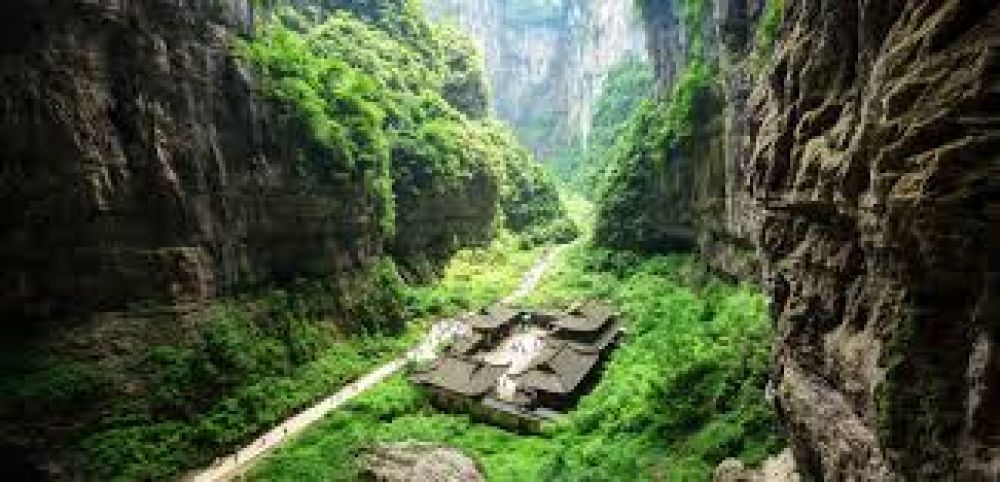

The Wulong Karst National Geology Park, famous for its stunning natural bridges and karst formations, is a highlight of Chongqing, China. The optimal time to visit the park is during the spring and autumn seasons, specifically from April to June and September to November. During these months, the weather is generally pleasant with comfortable temperatures ranging from 10°C to 24°C (50°F to 75°F), making outdoor exploration enjoyable. Spring brings a refreshing burst of greenery as well as blooming flowers that enhance the scenic beauty, while autumn offers clear skies and fewer rain showers, ensuring perfect conditions for photography and sightseeing.
Visitors should avoid the summer and winter seasons if possible. Summers in Wulong can be quite hot and humid, with temperatures often exceeding 35°C (95°F), and the occasional heavy rain may result in slippery paths and limited visibility of the karst formations. Winters, on the other hand, can be rather cold, with temperatures hovering around freezing, which could make outdoor excursions less comfortable. Additionally, during the Chinese New Year and national holidays, the park experiences higher visitor traffic, so planning your visit outside of these peak periods is advised for a more tranquil experience.
| Month | Min Temp | Max Temp |
|---|---|---|
| January | 4°C °c | 10°C °c |
| February | 6°C °c | 12°C °c |
| March | 10°C °c | 17°C °c |
| April | 14°C °c | 22°C °c |
| May | 18°C °c | 26°C °c |
| June | 22°C °c | 29°C °c |
| July | 24°C °c | 34°C °c |
| August | 24°C °c | 35°C °c |
| September | 20°C °c | NA |
| October | 16°C °c | 22°C °c |
| November | 11°C °c | 17°C °c |
| December | 6°C °c | 12°C °c |